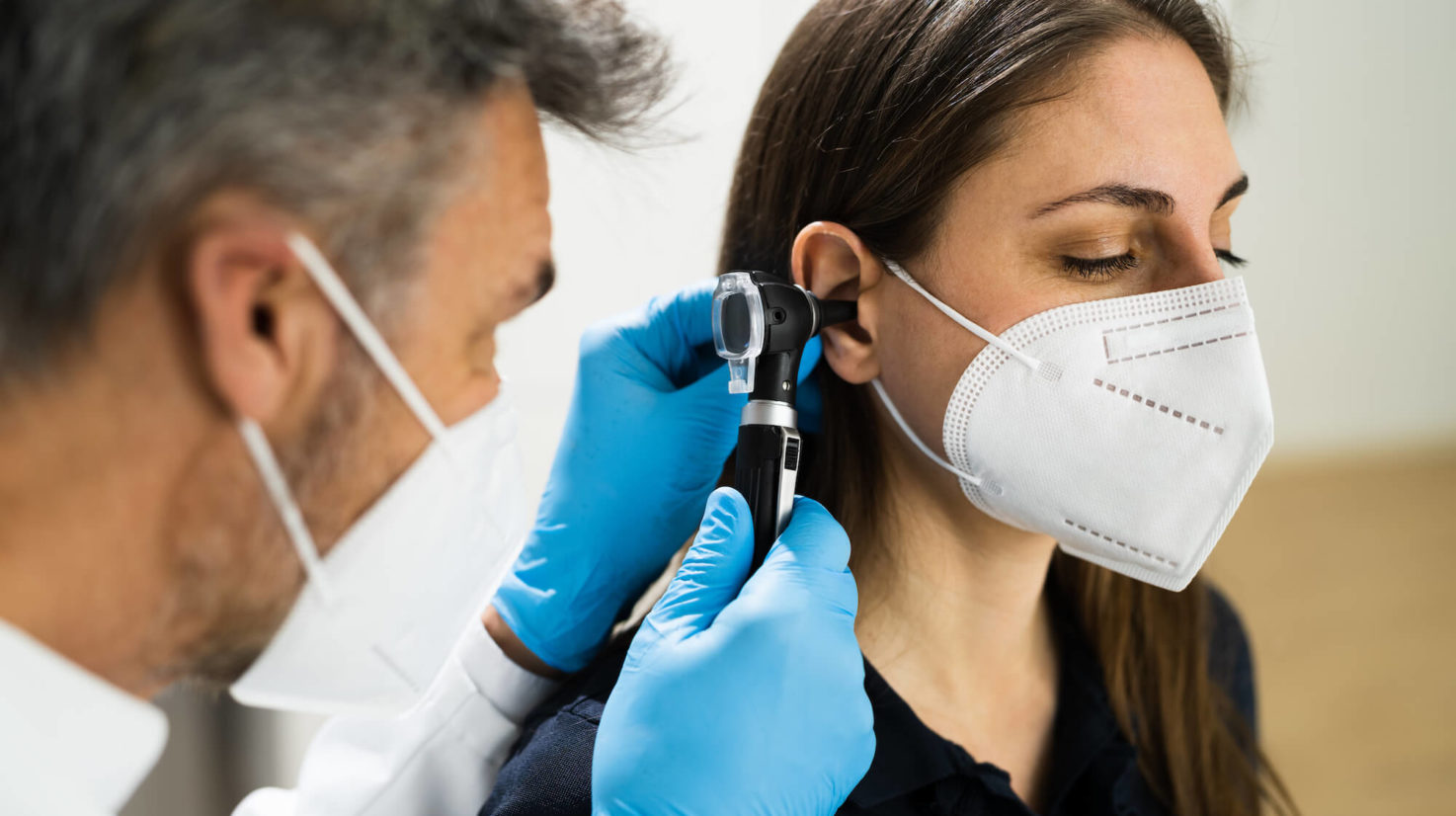Exploring the Field of Otolaryngology: What to Anticipate When You Speak With an ENT
Otolaryngology, typically described as ENT, encompasses the diagnosis and therapy of throat, nose, and ear conditions. For those experiencing relevant problems, seeking advice from an ENT expert can supply quality and relief. Recognizing what to anticipate throughout such consultations is crucial for efficient interaction and care. This overview will certainly outline crucial elements of the ENT experience, including typical factors for gos to and the procedures entailed in diagnosis and therapy.

Recognizing Otolaryngology: A Summary
Otolaryngology, often described as ENT (Nose, ear, and throat) medicine, is a customized branch of medicine that focuses on the diagnosis and therapy of conditions impacting these crucial locations of the human body. This field includes a vast array of problems, including those pertaining to hearing, balance, respiratory system function, and speech. Otolaryngologists are trained to handle both surgical and clinical therapies, using advanced methods and modern technologies. Their competence expands past traditional disorders, attending to concerns such as allergic reactions, sinus infections, and hearing loss. Additionally, they play a critical duty in the management of head and neck cancers cells, supplying complete treatment customized to individual client requirements. Overall, otolaryngology remains vital for maintaining health and quality of life in afflicted people.
Typical Reasons to See an ENT Expert
Several individuals seek the expertise of an ENT expert for a range of factors, reflecting the diverse nature of problems that influence the throat, nose, and ear. Common problems include persistent sinus problems, which commonly brings about relentless nasal congestion and facial pain. Allergic reactions and their associated symptoms, such as sneezing and itching, additionally motivate visits to these experts (Hearing). Hearing loss, whether gradual or unexpected, is another significant reason for appointment. In addition, people may look for analysis for throat problems, including consistent hoarseness or swallowing difficulties. Rest apnea, identified by cut off breathing during sleep, is frequently attended to by ENT professionals also. Each of these problems highlights the value of specialized care in managing complicated ENT-related health concerns
Preparing for Your ENT Consultation
When getting ready for an ENT visit, it is necessary to collect pertinent information and consider any kind of specific issues. Individuals ought to compile a thorough clinical history, consisting of previous ear, nose, or throat problems, surgical procedures, and present medications. Recording signs-- such as frequency, duration, and seriousness-- can provide beneficial insights for the ENT professional. Additionally, people must prepare a checklist of questions they wish to ask, making certain that all worries are dealt with during the visit. Bringing along any relevant medical records or test outcomes can even more help the ENT in comprehending the patient's condition. Finally, patients need to verify their appointment details, including area, day, and time, to lessen any final complication. Correct prep work can improve the performance of the appointment and bring about far better outcomes.
What to Anticipate During the Assessment
As the consultation begins, the client can anticipate to participate in a comprehensive conversation with the ENT professional about their signs and symptoms and medical background. The professional will certainly ask about the duration, regularity, and seriousness of symptoms such as hearing loss, nasal blockage, or sore throat. Furthermore, the patient's previous medical conditions, medications, and any kind of relevant family members background will be examined, helping the specialist in creating a total understanding of the patient's health and wellness. The ENT may additionally ask regarding way of living aspects, such as direct exposure to toxic irritants or irritants. This open discussion develops a structure for the examination, ensuring that the person's worries are attended to and establishing the phase for any essential analyses or recommendations for therapy.
Diagnostic Tests and Procedures in Otolaryngology
A variety of analysis tests and procedures are vital in otolaryngology to accurately evaluate and identify conditions impacting the ear, nose, and throat. Usual tests include audiometry, which gauges hearing feature, and tympanometry, evaluating center ear stress. Nasal endoscopy permits visualization of the nasal flows and sinuses, while laryngoscopy checks out the throat and vocal cords. Imaging techniques, such as CT scans and MRIs, offer in-depth sights of head and neck frameworks. Allergy testing may likewise be performed to determine triggers for sinus or breathing concerns. These analysis devices make it possible for ENT specialists to establish a detailed understanding of patients' problems, making sure tailored and reliable administration plans. Correct medical diagnosis is crucial for effective therapy end results in otolaryngology.
Treatment Options Used by ENT Specialists
ENT experts use a selection of treatment options tailored to deal with certain problems influencing the throat, nose, and ear. These treatments vary from traditional methods, such as medication and lifestyle alterations, to even more intrusive treatments. As an example, allergic reactions might be managed with antihistamines or immunotherapy, while persistent sinus problems could call for nasal corticosteroids or sinus surgery. For hearing loss, ENT experts commonly recommend listening devices or surgical interventions like cochlear implants. In instances of throat problems, alternatives can include speech treatment or operations to eliminate blockages. Furthermore, they might provide guidance for taking care of rest apnea, you could try this out including using CPAP devices or surgical treatments. In general, the goal is to boost patients' lifestyle with personalized treatment and efficient treatment techniques.
When to Seek Follow-Up Care With an ENT
When to seek follow-up care with an ENT professional is vital for handling ongoing symptoms or issues related to ear, nose, and throat conditions, identifying. People should take into consideration arranging a follow-up appointment if signs and symptoms persist regardless of initial treatment, such as chronic ear discomfort, nasal congestion, or throat pain. Modifications in hearing, balance problems, or uncommon nasal discharge may additionally warrant further analysis. Additionally, if a client experiences adverse effects from suggested medicines or has undertaken a procedure, follow-up treatment is crucial to check recuperation and resolve any kind of worries. Prompt appointments can guarantee effective monitoring of conditions, stop possible problems, and offer tranquility of mind regarding one's wellness. Seeking follow-up care advertises positive health administration in otolaryngology.
Often Asked Inquiries

What Qualifications Should I Try to find in an ENT Expert?
When looking for an ENT specialist, one should try to find board accreditation, relevant imp source experience, and strong patient evaluations. Furthermore, reliable communication abilities and a thoughtful approach can significantly enhance the total treatment experience.
How Do I Select the Right ENT for My Requirements?
Picking the best ENT expert includes reviewing their certifications, experience, and person testimonials (Sinus). It is vital to consider their communication design and technique to therapy, ensuring they align with the individual's certain health and wellness needs and preferences
Are There Any Type Of Threats Related To ENT Procedures?
The risks connected with ENT treatments might include infection, blood loss, anesthesia problems, and prospective damage to surrounding frameworks. Patients should go over these dangers with their physician to recognize private issues and guarantee educated choices.
Just How Can I Handle Anxiety Prior To My ENT Consultation?
To manage anxiety before a consultation, individuals can practice deep breathing exercises, imagine favorable end results, prepare concerns ahead of time, and look for support from friends or household, cultivating a sense of confidence and peace.
What Should I Do if I Experience Adverse Effects From Therapy?
If negative effects from therapy happen, the individual ought to immediately report them to their doctor. Modifications to treatment or additional treatments might be required to guarantee security and performance in handling their problem - Otolaryngology. As the examination begins, the patient can expect to involve in an extensive conversation with the ENT specialist concerning their signs and medical constant nasal drip history. These analysis tools make it possible for ENT professionals to create a comprehensive understanding of people' problems, guaranteeing customized and effective monitoring strategies. ENT specialists provide a variety of treatment choices customized to deal with specific conditions affecting the ear, nose, and throat. When looking for an ENT specialist, one need to look for board certification, pertinent experience, and solid individual reviews. Picking the best ENT professional includes assessing their qualifications, experience, and individual reviews